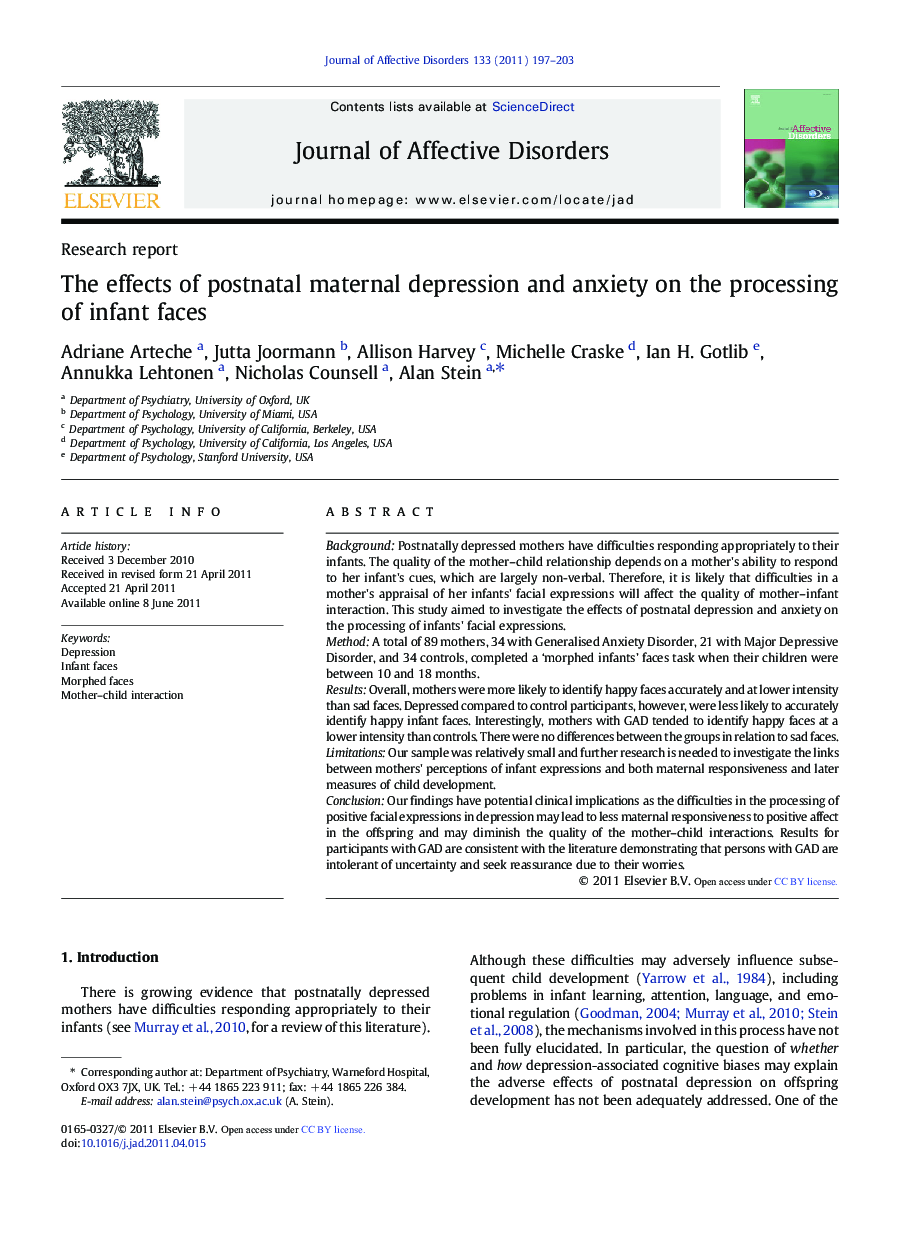| Article ID | Journal | Published Year | Pages | File Type |
|---|---|---|---|---|
| 6235264 | Journal of Affective Disorders | 2011 | 7 Pages |
BackgroundPostnatally depressed mothers have difficulties responding appropriately to their infants. The quality of the mother-child relationship depends on a mother's ability to respond to her infant's cues, which are largely non-verbal. Therefore, it is likely that difficulties in a mother's appraisal of her infants' facial expressions will affect the quality of mother-infant interaction. This study aimed to investigate the effects of postnatal depression and anxiety on the processing of infants' facial expressions.MethodA total of 89 mothers, 34 with Generalised Anxiety Disorder, 21 with Major Depressive Disorder, and 34 controls, completed a 'morphed infants' faces task when their children were between 10 and 18Â months.ResultsOverall, mothers were more likely to identify happy faces accurately and at lower intensity than sad faces. Depressed compared to control participants, however, were less likely to accurately identify happy infant faces. Interestingly, mothers with GAD tended to identify happy faces at a lower intensity than controls. There were no differences between the groups in relation to sad faces.LimitationsOur sample was relatively small and further research is needed to investigate the links between mothers' perceptions of infant expressions and both maternal responsiveness and later measures of child development.ConclusionOur findings have potential clinical implications as the difficulties in the processing of positive facial expressions in depression may lead to less maternal responsiveness to positive affect in the offspring and may diminish the quality of the mother-child interactions. Results for participants with GAD are consistent with the literature demonstrating that persons with GAD are intolerant of uncertainty and seek reassurance due to their worries.
